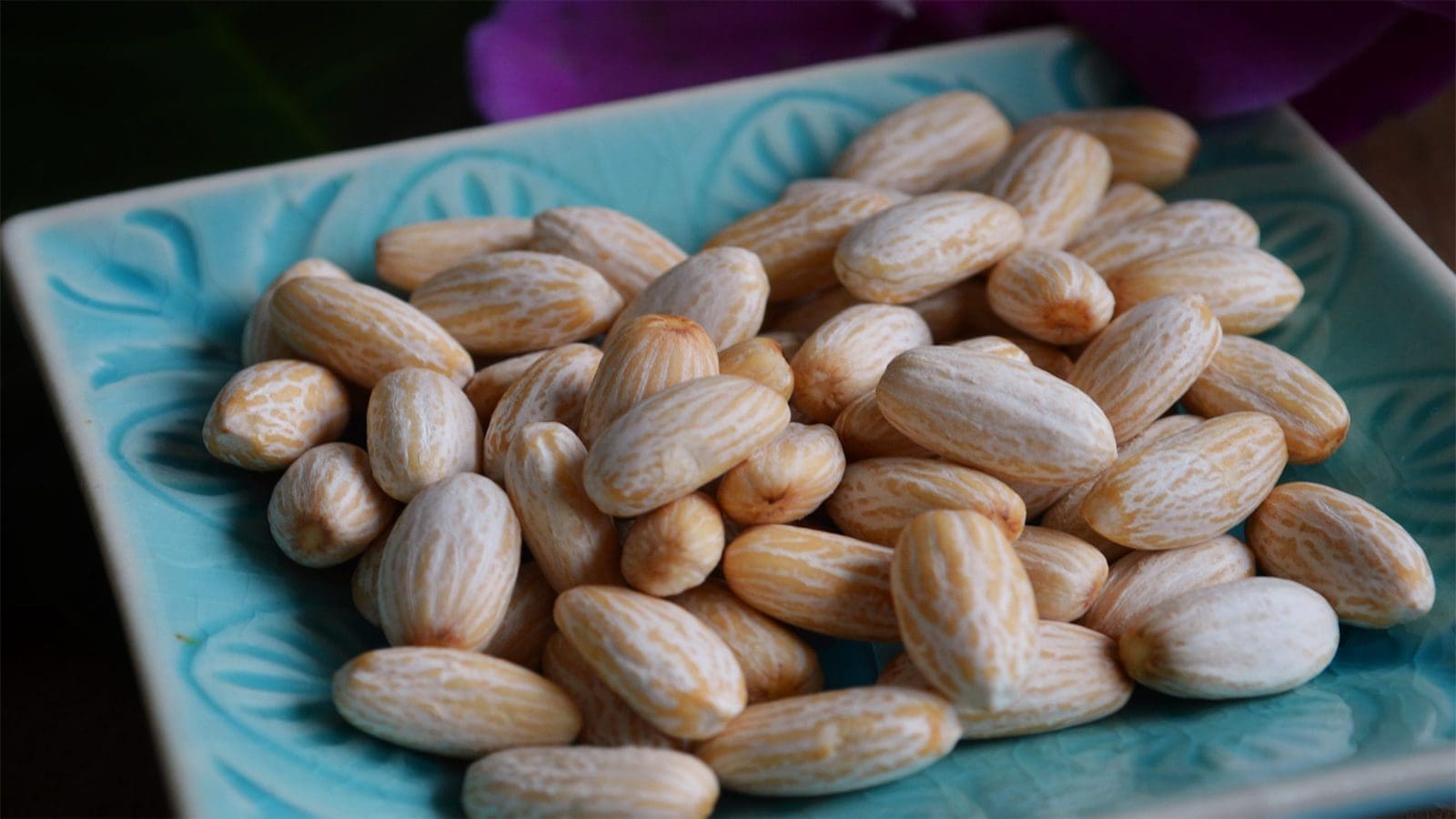GERMANY – JatroSolutions, a breeding company based in Germany, has received a positive opinion regarding the nutritional composition of the Chuta nut it produces following an analysis by the European Food Safety Authority (EFSA).
Based as a department of the College of Hohenheim, after researching the nut and its potential uses, JatroSolutions has been focused on bringing the Chuta nut to the European market since 2015. Therefore, in 2016, the company submitted an application to EFSA to consider the nut as a noble food.
Under EU regulations, any food that was not consumed “significantly” prior to May 1997 is considered to be a novel food.
The category covers new foods, food from new sources, new substances used in food as well as new ways and technologies for producing food. Examples include oil rich in omega-3 fatty acids from krill as a new source of food, edible insects, or plant sterols as a new substance or nanotechnology as a new way of producing food.
Chuta is a model title for an edible nut from Jatropha Kurkas which is native to the American tropics. Oil from Jatropha Kurkas is usually largely transformed to biodiesel to be used in diesel engines.
However, the nut from the plant is a traditional food in its native areas such as Mexico.
The corporate now plans to promote snacks from Chuta, corresponding to bars and cereal, in European supermarkets.
Sebastian Held, Managing Director of JatroSolutions, informed FoodNavigator that the nuts high content of unsaturated fatty acids and proteins makes them perfect for the healthy nutrition market.
“Chuta nuts are characterized by a high proportion of amino acids, first-class unsaturated fatty acids and rich minerals. With their protein content of up to 30% material, they provide the body with more energy than almonds and peanuts,” he said.
Chuta’s nutritional composition
The EFSA evaluation confirmed that the primary elements of the nut are lipids and proteins. The entire fats makes up about 60% of the nut, with the relative proportion of unsaturated fatty acids making up about 80% of the overall fats, and proteins making up about 25%.
Chuta nuts are additionally low in carbs, sugars, salt and unhealthy trans fatty acids, however include extra minerals than most common nuts, Held said.
“Chuta is an ideal source of plant-based protein for improving fitness, for an energy kick in the stressful office routine, and for all vegetarians and vegans,” he said.
He added that the Chuta nut has a unique nutty taste. “The style is incomparable to different nuts. Chuta’s distinctive style might be someplace between almonds and sunflower seeds.”
JatroSolutions mentioned it has been analyzing, characterizing and enhancing Chuta varieties over a number of years and has developed a sustainable value chain for manufacturing. Chuta is free from nut allergens and has a comparatively simple post-harvest process.
After removing the fruit husks, the inshell nuts are dried. The nuts are then peeled and roasted.
JatroSolutions claims to be the only company that provides Chuta planting materials and cultivation expertise.
Further, it claims that manufacturing of the nut offers many agronomic advantages like high yield stability, a concentrated harvest period, lowered plant dimension for simpler harvesting, and the power to adapt to completely different circumstances.
The corporate’s principal plantations are situated in Paraguay. It plans to develop Chuta in Latin America, Africa and Asia.
“Within the coming years, we are planning with an annual harvest of as much as 600 tons per year. But of course, we have some upscaling potential. We’re presently searching for buyers for the market entry and scaling part,” Held mentioned.
Liked this article? Subscribe to Food Safety Africa News, our regular email newsletters with the latest news insights from Africa and the World’s food safety, quality and compliance. SUBSCRIBE HERE








